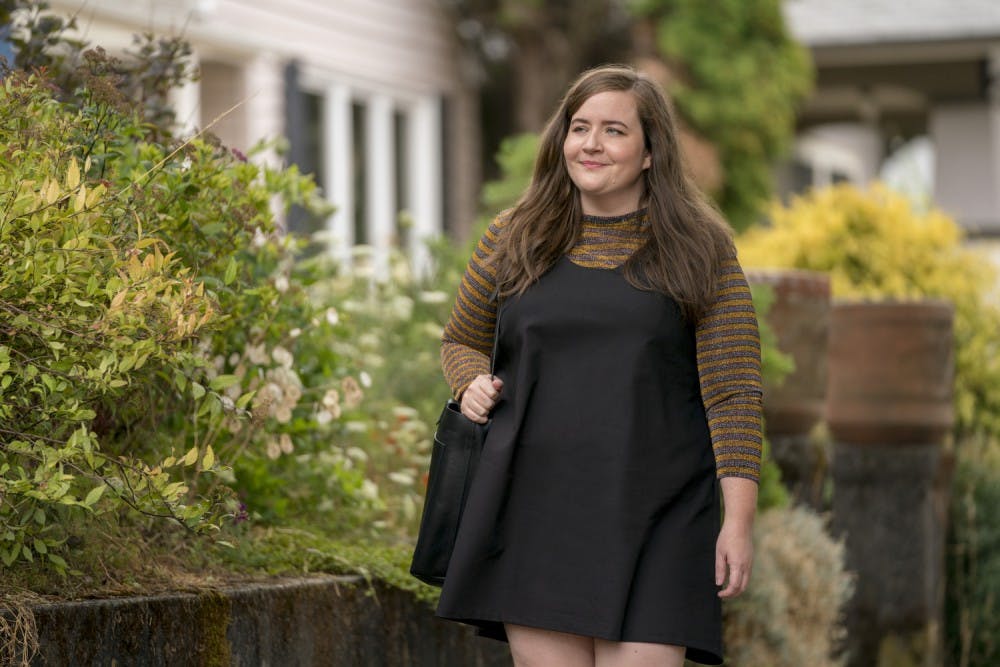Whenever critics start to talk about a show the way they talked about Hulu’s new show “Shrill,” I’m doubtful.
The same adjectives get bandied about freely every time there’s a new television show centered on a woman who, by way of being fat or black or somehow “refreshingly” different, is not your average looking celebrity. The shows are all “honest” and “brave” but tend to fall a little flat when it comes time to actually watch them.
“Shrill,” however, doesn’t. It actually manages to be all those adjectives and more.
The show follows aspiring journalist Annie — as an aspiring journalist also named Annie I might be a tad biased when I say I find her character relatable — who struggles with perceptions of her weight in addition to work, a flaky boyfriend and a difficult relationship with her parents.
Played by “Saturday Night Live” cast member Aidy Bryant, Annie and the challenges she faces are all too brutally real for an audience who has felt some of those same struggles. In one scene, her mother reminds her almonds are a good snack for in between meals, a suggestion that’s meant to be helpful but ends up being just another dig at her weight.
But more importantly than just being honest or brave, “Shrill” is funny. That’s the problem with shows that try to be important, especially with ones concerned with the representation of larger bodies on screen. If all a show is is important, then watching it isn’t actually fun.
For example, AMC’s now-canceled comedy “Dietland” also followed an aspiring writer who struggled with her weight and loving herself, but veered into social commentary with a feminist terrorism subplot that totally lost my interest. The show was important and brave and all that in its portrayal of its heroine, Plum, but it forgot to be funny.
“Shrill” doesn’t make the same mistake. The first writing assignment we see Annie tackle on the job is a food column reviewing the lunch buffet at a strip club, and her conversation with the strippers ranges from awkward to genuine but is never not worth a laugh.
Another early joke has Annie hesitantly trying to cross a street, but she’s too polite to not let cars pass by in front of her. Most people who have crossed a street have had that feeling. That’s how a lot of the jokes sound, like your charismatic friend telling a story and you realize you’ve felt the same way before.
That friend is writer Lindy West, who authored the essay collection “Shrill: Notes from a Loud Woman” that served as the source material for the show. The show’s realism is one metered by comedy, and it makes sense that its origin point is a series of personal essays.
With “Shrill,” years of funny stories and private torments are condensed into a sharp six-episode season that feels natural but never forced, important without being too self-serving.
One episode focuses on Annie being invited to a “fat babe pool party” and how childhood anxiety transmutes over time into harmful adult insecurity.
The ending is a flashback to Annie’s childhood, sneaking out of a hotel room while on vacation to swim in the pool at night after refusing to during the day. The last shot is her sitting in an inner tube, splashing the water, just floating free.
It’s a familiar, relatable moment for many, and it cuts to the core of what I love about the show. Despite negativity and trials and oh-so-many tribulations, there’s that moment of joy we can find again. It’s still possible to float after all this time, to feel free.




